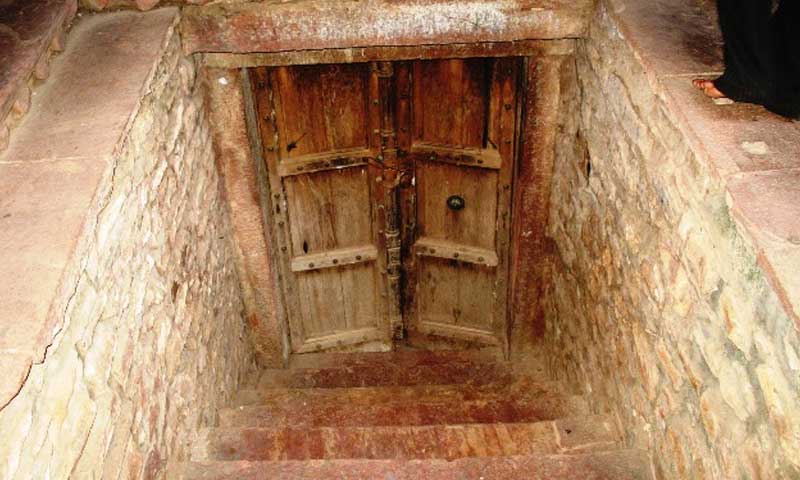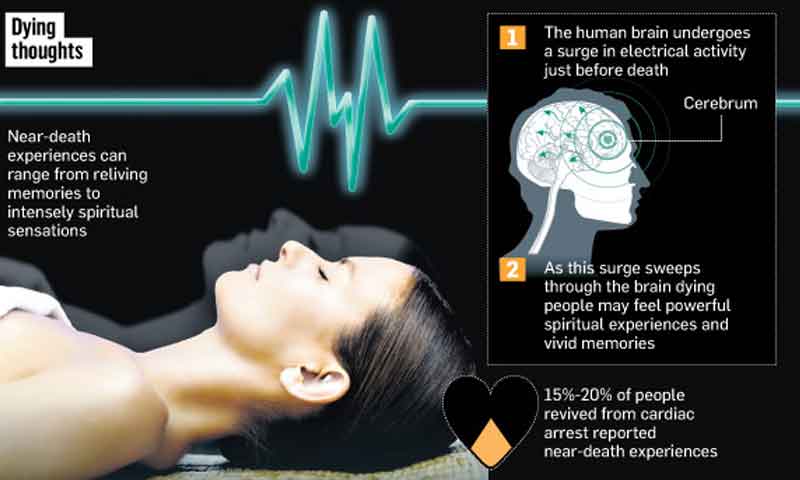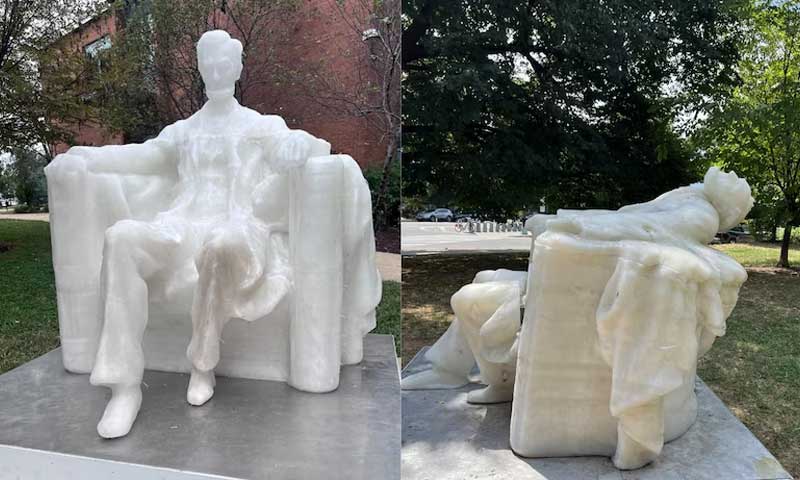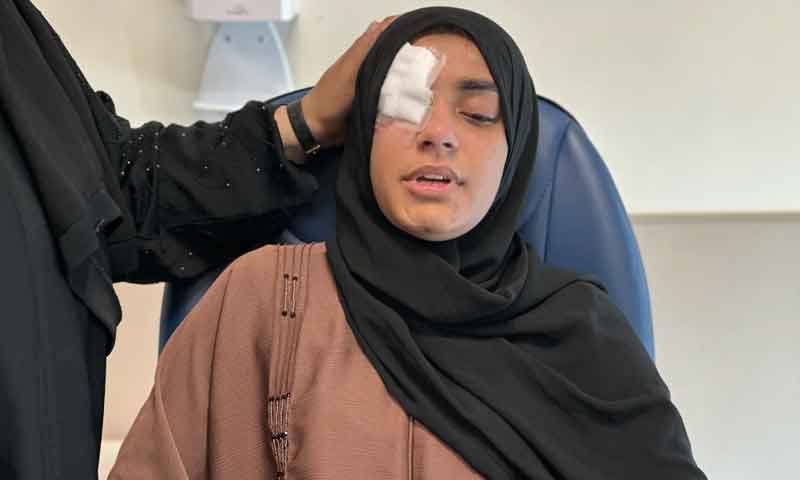
The 19-year-old Palestinian woman had pinned all her hopes on getting a prosthetic eye after suffering life-changing injuries in an Israeli strike in Gaza. She was brought to Doha for treatment by the Qatari government.
But once again, her dreams were shattered.
“I came here, and now they said I won’t be able to get a prosthetic,” she told CNN between sobs. “Why am I here? I knew I wouldn’t be able to see with it but it’s good and my eyes will look the same.”
Abu Jibba lost her right eye and the surrounding part of her face in early January when an Israeli bomb hit the warehouse in central Gaza where she and her family had been sheltering for months.
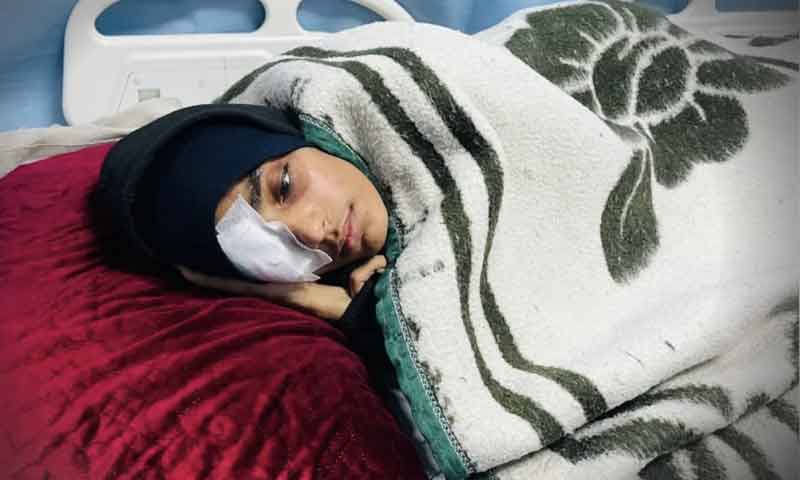
Three of her brothers and two of her sisters were killed. Her wounded mother and three surviving siblings tried to get help and left her behind, later believing she was dead. She spent more than three days surrounded by the bodies of her siblings before making it to a hospital – only to find out there were no doctors there to treat her because most of the medical staff had fled the fighting in the area.
Raneem Hijazi recounts the night of the Israeli airstrike that killed one-year-old son Azouz, from a hospital bed in Doha, Qatar, where she's receiving treatment after left arm was amputated, and both legs sustained extensive damage, requiring bone grafts to repair them.
A weeks-long CNN investigation into the circumstances of the strike found that the Israel Defense Forces (IDF), without any advance warning, attacked an industrial area housing dozens of civilians using a heavy munition, the aftermath of which was consistent with a 2,000-pound bomb, according to weapons experts.
Also read: 47 Palestinians killed as Israeli tanks roll into Gaza neighbourhood
Abu Jibba had once been gregarious and outgoing. After seeing her siblings killed in front of her, she became quiet and deeply depressed. Her aunt who accompanied her to Qatar told CNN the young woman now prefers solitude, and rarely goes outside. She spends most of her time looking at photos of her family taken before the war – the few that she still has.
She said her one source of happiness was Mohammed, a friend of her brother. The two met after her family was displaced from their home in Gaza City and became close after the attack in January. When Abu Jibba and her family were separated, and she was hospitalized, Mohammed offered desperately needed emotional support. She said they were going to get engaged and married.

“He didn’t care about what people were saying about my appearance, when people would say, ‘How could you marry her after she was injured in her eye and body?’ He would say, ‘I don’t care about her body, I care about what’s in her heart,’” she told CNN.
Seven days before Abu Jibba left Gaza for treatment, Mohammed was killed by an artillery shell while collecting firewood in Rafah, she said, adding that her cousin who was with Mohammed was injured in the attack and lost his leg.
Abu Jibba said she doesn’t even have a photo of Mohammed, having lost her phone in the carnage.
Difficult choices
Also read: Israeli forces pound north and south Gaza, battle Hamas in Rafah
Abu Jibba’s injuries were so severe that Gaza’s Ministry of Health put her on a list of people who needed treatment abroad. Three days after CNN’s report on Abu Jibba aired in February, she was cleared for medical evacuation. After weeks of waiting, she was able to cross into Egypt and was then flown to Qatar for treatment.
Most of the 2.2 million Palestinians who live in Gaza have never left the strip. Before the war, some 18,000 Gazans had work permits that allowed them to work in Israel. But after Hamas launched its deadly terror attack from Gaza on October 7, Israel shut the borders, in general only allowing foreigners and a few hundred of the most seriously wounded to leave.
“It’s hard leaving your family especially at a time of war and in a difficult situation,” she said. “I’m worried something else (could) happen to them and I can’t bring them with me.”
Abu Jibba told CNN she decided to leave because she believed that doctors could surgically restore her vision. In Egypt, she was told that wouldn’t be possible because her entire eye had been removed but was offered further treatment by the Qatari government.
But her stay in Doha has turned into yet another traumatic experience.
The doctor told her that Qatar did not offer orbital prosthetic implants and said that her issue was just “cosmetic.”
Also read: High risk of famine persists across Gaza, global hunger monitor says
As Abu Jibba left the doctor’s office, the weight of the moment crushed her. She shook and gasped. Panic set in, and she looked like she was reliving the worst moment of her life. She squeezed her hands against her ears, leaning against the wall.
Nurses eased her onto a stretcher. She curled up into a ball and hid under a blanket.
She is keeping the news away from her mother, fearing the shock might cause her even more pain.
“She pushed me to leave to get the surgery. I don’t want to go back to her with this patch,” she said. “I (need this) so my mother doesn’t see me like this and be depressed.”
Later that day, Abu Jibba told CNN that what she wanted more than anything was to go back to Gaza.
“Yes, there’s a war in Gaza but at least you are with your family and loved ones,” she said. “I just hope to God this war is over… but even if there is war I want to go back.”
